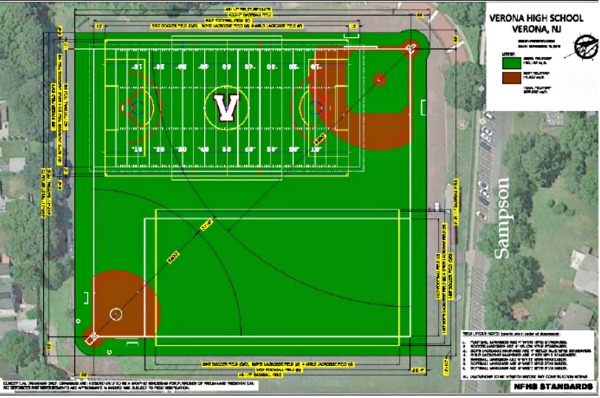
On Tuesday, November 7, Verona voters will choose between two candidates to fill one seat on the Verona Board of Education. Lisa Freschi is running for re-election, and she is being challenged by Connor McCann, a 2015 graduate of Verona High School. MyVeronaNJ.com asked both candidates for their views on four key issues for the future of public school education in Verona.
Question 1: Verona has completed all the work funded by its 2014 referendum. What should our next big capital projects be and how will you address them?
Freschi: Having six buildings in the district, there is always work to be done. The last two referendums have addressed most of the major concerns. The next big capital projects on the horizon are roofs and windows. They were last replaced around 1997. The rigging systems in the auditoriums at HBW and VHS are also in need of attention. Putting together another, much smaller, referendum is the current thought process. Doing so gives the public a say in what they feel is important and necessary. It is also a more responsible way to stay on top of the continuous need for improvements on our buildings and grounds outside of our daily operating budget.
McCann: Capital improvements are always going to be the “big ticket” items with regards to a budget. In Verona, the constant struggle over the past number of years has been our aging facilities and how to improve them. I believe that two goals of capital projects in the future should be continuing building maintenance projects and advancing our technological resources for students of all grade levels. Projects such as heating and cooling at the elementary schools and middle school should be prioritized. Also adding more air conditioning to the schools in need of it should be a priority. We cannot expect students to be able to have a fully positive learning environment when they are working in classrooms with sweltering heat.
As far as technology goes, we must continue to make strides to improve and update the resources available to students. School districts in our area far surpass us with the amount of technology that they have and how up to date it is. In this technology age, the school district needs to prepare the students in the best way possible to succeed in today’s society. Another way that this can be accomplished is by allowing every classroom to be equipped with the same technology in order to make it universal for students transitioning from class to class.
Additionally, the current board is in support of a bundle of small referendums to fund projects that they deem necessary in the coming years. However, a series of smaller referendums (in comparison to the 2014 referendum) is not the answer, like the Board has proposed. While smaller referendums may seem like a more effective option rather than one large referendum, they in fact would have a higher cost in the long term for the taxpayer. All referendums have a cost attached to them, no matter if the cost of the improvements include in it is large or small. Money has to be allocated and bonded to hold a referendum, as well as all of the other associated costs. The cost of the bonds thus puts a strain on each and every Verona resident when it comes to taxes. While there are important issues on the table that should be voted on in a referendum by the taxpayers of Verona, the Board must also be careful not to create costly referendums for improvements that could be just as easily be budgeted for without the use of one. Each and every referendum puts a burden on the wallet of the taxpayer and if I am elected, I will ensure that the Board is only using referendums for items of the utmost importance that the public should be voting on directly.
